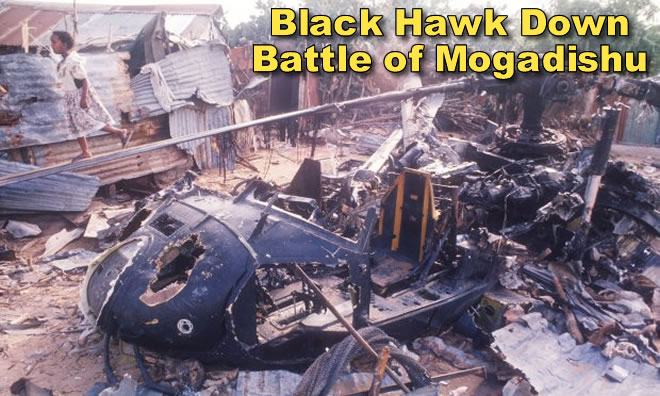

By Katie Glueck
Wednesday, December 24, 2014
The Habr Gidr clan suffered significant civilian losses during a U.S. military operation in the Somali capital of Mogadishu in July 1993 — a precursor to the U.S. troops’ battle in that city that was detailed in the “Black Hawk Down” book and movie.
Clan members recently retained D.C. lawyer Steven Schneebaum, who told POLITICO that they want to reset relations with the American government and gain monetary support for their people in the impoverished African nation.
Schneebaum shunned the word “reparations” in describing the clan’s desire for U.S. financial backing, saying that bolstering this clan is a wise investment.
“These are people who have shown their proper behavior, shown their commitment to things that are American values,” he said. “They have suffered a great deal and would be worthy of whatever civil society restorations the U.S … may be offering in Somalia. We’re not talking about compensation for injury.”
The United States was involved in Somalia from 1992-1994, initially in humanitarian efforts but later in military action.
The Habr Gidr clan’s ranks included warlord Mohammed Farah Aidid, who fought against U.S. and United Nations forces. U.S. troops seeking to stop Aidid ended up clashing with Somalis in Mogadishu in October 1993. Eighteen U.S. soldiers died, as did hundreds of Somalis.
But that was more than 20 years ago, Schneebaum noted. Somalia has made strides in rebuilding a central government in recent years, though it still suffers from Islamist militant and other violence.
“We’re not sort of trying to repair his image, restore him to some important place in the pantheon,” Schneebaum said of Aidid, “but simply to say, then was then, now is now.”
Schneebaum, who typically charges $640 an hour, according to public records, said he plans to focus first on making the clan’s case for funding to the State Department, USAID and other corners of the executive branch. But he didn’t rule out turning to Congress down the line.
“Our position is, this is a tribe, a clan, that has suffered disproportionate injury, but the claim for the U.S. government’s support is not going to be based on the fact of that injury so much as on their current profile,” he said. “Meaning, they’re supportive of the U.S., they don’t engage in terrorism, they’re peace-loving and law-abiding.”
Source: POLITICO